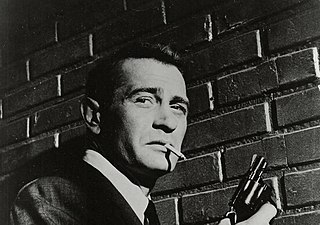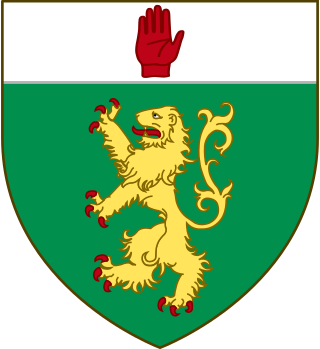Related Research Articles

Norris Dewar McWhirter was a British writer, political activist, co-founder of The Freedom Association, and a television presenter. He and his twin brother Ross were known internationally for founding the reference book The Guinness Book of Records which they wrote and annually updated together between 1955 and 1975. After Ross's assassination by the Provisional Irish Republican Army (IRA), Norris carried on alone as editor.

Alan Ross McWhirter was, with his twin brother, Norris, the cofounder of the 1955 Guinness Book of Records and a contributor to the television programme Record Breakers. He was assassinated by the Provisional Irish Republican Army (IRA) in 1975.
MacLeod, McLeod and Macleod are surnames in the English language. The names are anglicised forms of the Scottish Gaelic MacLeòid, meaning "son of Leòd", derived from the Old Norse Liótr ("ugly").

MacLean, also spelt Maclean and McLean, is a Scottish Gaelic surname Mac Gille Eathain, or, Mac Giolla Eóin in Irish Gaelic), Eóin being a Gaelic form of Johannes (John). The clan surname is an Anglicisation of the Scottish Gaelic "Mac Gille Eathain", a patronymic meaning "son of Gillean". Gillean means "the Servant of [Saint] John [the Baptist]"), named for Gilleathain na Tuaidh, known as "Gillian of the Battleaxe", a famous 5th century warrior.
Neil is a masculine name of Irish origin. The name is an anglicisation of the Irish Niall which is of disputed derivation. The Irish name may be derived from words meaning "cloud", "passionate", "victory", "honour" or "champion". As a surname, Neil is traced back to Niall of the Nine Hostages who was an Irish king and eponymous ancestor of the Uí Néill and MacNeil kindred. Most authorities cite the meaning of Neil in the context of a surname as meaning "champion".

Ciarán or Ciaran is a traditionally male given name of Irish origin. It means "little dark one" or "little dark-haired one", produced by appending a diminutive suffix to ciar. It is the masculine version of the name Ciara.
McIntyre, McEntire, MacIntyre, McAteer, and McIntire are Scottish and Irish surnames derived from the Gaelic Mac an tSaoir literally meaning "son of the Craftsman or Mason", but more commonly cited as "son of the Carpenter." It is common in Ulster and the highlands of Scotland, found in Ireland mostly in counties Donegal, Londonderry, Tyrone and Sligo.
MacDonald, Macdonald, and McDonald are surnames of both Irish and Scottish Origin. In the Scottish Gaelic and Irish languages they are patronymic, referring to an ancestor with given name Donald.

Orr is a surname of Scottish and Ulster-Scots origin. It is derived from the Gaelic Odhar meaning "dark, pale". In Scotland, Orr may be a sept of Clan Campbell.

Darren is a masculine given name of uncertain etymological origins. Some theories state that it originated from an Anglicisation of the Irish first name Darragh or Dáire, meaning "Oak Tree". According to other sources, it is thought to come from the Gaelic surname meaning ‘great’, but is also linked to a Welsh mountain named Moel Darren. It is also believed to be a variant of Darrell, which originated from the French surname D'Airelle, meaning "of Airelle". The common spelling of Darren is found in the Welsh language, meaning "edge": Black Darren and Red Darren are found on the eastern side of the Hatterrall Ridge, west of Long Town. In New Zealand, the Darran Mountains exist as a spur of the Southern Alps in the south of the country.

McGuinness is an Irish surname. It derives from and is an anglicized form of the Gaelic Mac Aonghuis, literally meaning "son of Angus". It may also denote the name Mac Naois.
McLennan, MacLennan, and Maclennan are surnames derived from the Scottish Gaelic Mac Gille Fhinnein. Notable people with the surname include:
MacDonnell, Macdonnell, or McDonnell is a surname of Scottish and Irish origin. It is an anglicized form of the Gaelic patronymic Mac Dhòmhnaill, meaning "son of Dòmhnall". The Gaelic personal name Dòmhnall is a Gaelicised form of the name Donald, which is composed of the elements domno, meaning "world", and val, meaning "might" or "rule". The name is considered a variation of MacDonald.

McGowan is an Irish and Scottish surname. It is an Anglicization of the Irish Mac Gabhann and Scottish Mac Gobhann, both of which mean 'son of (the) smith'. Belonging to the Uí Echach Cobo, located in modern-day western County Down, Ulster, they were of the same stock as the McGuinness clan.
Douglas is a masculine given name which originated from the surname Douglas. Although today the name is almost exclusively given to boys, it was used as a girl's name in the seventeenth and eighteenth centuries in the north of England. The Scottish surname Douglas was borne by one of the most powerful families of the Kingdom of Scotland. It has sometimes been stated that the given name is connected with the given name Dougal, although it is more likely derived from the surname already mentioned.
MacLaren or Maclaren is a surname of Scottish origin. The name is an Anglicisation of the Gaelic Mac Labhrainn meaning "son of Labhrann". The Gaelic personal name Labhrann is a Gaelicised form of Lawrence.
The surnames MacGavin and McGavin are Scottish surnames, which are possibly variations of the surnames McGowan and MacGowan, which are Anglicised forms of the Scottish Gaelic MacGobhann and Irish Gaelic Mac Gabhann, meaning "son of the smith". When the surname MacGavin and McGavin originate from Glasgow and Moray, they can be represented in Scottish Gaelic as Mac a' Ghobhainn.
Mac a' Ghobhainn is a Scottish Gaelic surname, meaning "son of the smith". The surname is used as a Scottish Gaelic form of several English-language surnames: MacGowan, and McGowan; and in Glasgow and Moray, the surnames MacGavin and McGavin. The feminine form of Mac a' Ghobhainn is Nic a' Ghobhainn.
MacKechnie and McKechnie are Irish/Scottish surnames. They are Anglicised forms of the Irish/Scottish Gaelic MacEacharna, meaning "son of Eacharn". The Irish/Scottish Gaelic personal name Eacharn is composed of two elements. The first element, each, means "horse"; the second element, tighearna, means "lord". In Scotland, the Scottish Gaelic MacEacharna has usually been Anglicised as McEachern. The surnames MacKechnie and McKechnie can be represented in Scottish Gaelic by MacEachainn, and MacEacharna. The McKechnies are a Sept of the Macdonalds of Clanranald.
Scottish surnames are surnames currently found in Scotland, or surnames that have a historical connection with the country.
References
- ↑ "What's in a name?". www.ancestry.com . Retrieved 11 December 2009.
- ↑ Mac an Tàilleir, Iain. "Ainmean Pearsanta". Sabhal Mòr Ostaig . Archived from the original (docx) on July 17, 2011. Retrieved October 15, 2009.